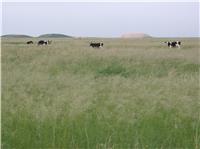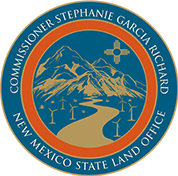Agricultural Leasing
Do you need some help?
The quickest way to reach us is to contact us through the contact form on the website.
Address:
310 Old Santa Fe Trail,
Santa Fe NM 87501
Phone:
505-827-5760





Agricultural leases on state trust land co-exist with other types of leases such as renewable energy projects, oil and gas development, and business leases. The Agricultural Leasing Bureau manages over 3,500 leases on state trust land with 600-900 leases requiring renewals annually.
The Bureau issues leases for livestock grazing and cropland production on 8.9 million acres. Fees for grazing leases are established annually using a grazing fee formula managed by New Mexico State University. The fee formula takes into account a variety of factors including current private grazing land lease rates by western livestock ranchers, beef cattle prices, and the cost of livestock production. The formula was implemented in 1988 to assure that fair market values are assessed for grazing.
AGRICULTURAL LEASING BUREAU
Ranching and farming is central to the livelihood and culture of New Mexico’s rural communities and production of livestock or crops is an important use of state trust lands. Rangeland constitutes a significant portion of the state, with the State Land Office controlling about 11.4 percent of New Mexico’s 78 million acres. Agricultural leases co-exist with other types of leases such as renewable energy production, oil and gas development, and commercial leases. The Agricultural Leasing Program manages about 3,500 leases on trust land. About 600 to 900 of these leases come up for 5-year term renewals annually.
The Agricultural Leasing Bureau issues leases for livestock grazing and cropland production which encompass 8.9 million acres. Fees for leasing are established by a grazing fee formula that is managed by New Mexico State University. The fee formula takes into account a wide variety of factors including current private grazing land lease rates by western livestock ranchers, beef cattle prices, and the cost of livestock production. This formula was implemented in 1988 to assure that fair market values are assessed for grazing rentals.
See: Grazing Fee Clarification
The Agricultural Leasing Bureau staff works toward increased efficiency and effectiveness in all lease transactions. These transactions include lease renewals, lease assignments, sublease applications, new lease applications, and improvement applications. The District Resource Managers play an important role in assisting lessees with their lease applications, as well as evaluating proposed improvement projects and providing recommendations to the Commissioner.
